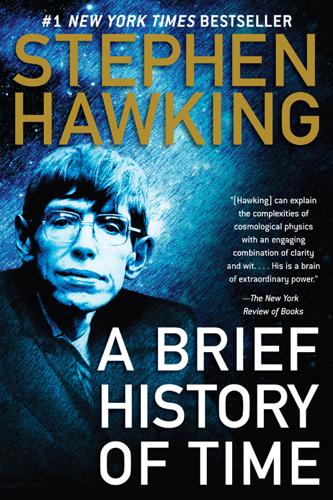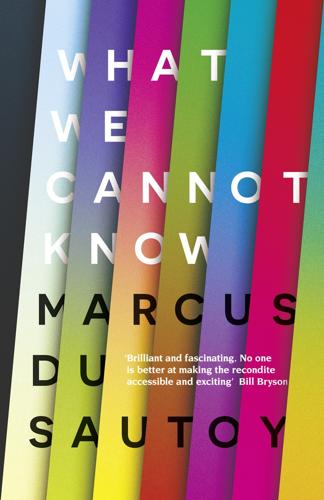bet made by Stephen Hawking and Kip Thorne
description: a public bet about the existence of black holes, which Stephen Hawking eventually conceded
2 results

A Brief History of Time
by
Stephen Hawking
Published 16 Aug 2011
A black hole seems to be the only really natural explanation of the observations. Despite this, I had a bet with Kip Thorne of the California Institute of Technology that in fact Cygnus X-l does not contain a black hole! This was a form of insurance policy for me. I have done a lot of work on black holes, and it would all be wasted if it turned out that black holes do not exist. But in that case, I would have the consolation of winning my bet, which would bring me four years of the magazine Private Eye. In fact, although the situation with Cygnus X-l has not changed much since we made the bet in 1975, there is now so much other observational evidence in favor of black holes that I have conceded the bet.
…
The strong version of the cosmic censorship hypothesis states that in a realistic solution, the singularities would always lie either entirely in the future (like the singularities of gravitational collapse) or entirely in the past (like the big bang). I strongly believe in cosmic censorship so I bet Kip Thorne and John Preskill of Cal Tech that it would always hold. I lost the bet on a technicality because examples were produced of solutions with a singularity that was visible from a long way away. So I had to pay up, which according to the terms of the bet meant I had to clothe their nakedness. But I can claim a moral victory.
…
ALSO BY STEPHEN HAWKING A Briefer History of Time Black Holes and Baby Universes and Other Essays The Illustrated A Brief History of Time The Universe in a Nutshell The Grand Design FOR CHILDREN George’s Secret Key to the Universe (with Lucy Hawking) George’s Cosmic Treasure Hunt (with Lucy Hawking) A BRIEF HISTORY OF TIME A Bantam Book Publishing History Bantam illustrated hardcover edition published November 1996 Bantam hardcover edition/September 1998 Bantam trade paperback edition/September 1998 All rights reserved. Copyright © 1988, 1996 by Stephen Hawking Illustrations copyright © 1988 by Ron Miller BOOK DESIGN BY GLEN M.

What We Cannot Know: Explorations at the Edge of Knowledge
by
Marcus Du Sautoy
Published 18 May 2016
Betting against your football team winning the final of the FA cup is a win–win situation: if your team loses, at least you benefit financially. If it turned out that his life’s work on black holes was a waste of time, then at least he’d won the bet. His prize? A subscription to Private Eye magazine to distract him from the misery of his failed research. He made the bet with fellow cosmologist Kip Thorne. Convincing evidence that proved that Cygnus X-1 was indeed a black hole would win Thorne a subscription to the journal of his choice. He opted for Penthouse magazine. By 1990 there was much evidence that Cygnus X-1 was indeed a black hole: it is estimated to have a mass of 14.8 times the mass of the Sun and to be too compact to be a star.
…
Perhaps, like the magazines being burnt, there is in theory a way to untangle this radiation and retrieve information about everything that disappears behind the event horizon. The puzzle of what happens to the information is called the black hole information paradox. In 1997 Hawking took out another bet, and this time Kip Thorne sided with him. Their bet was with Caltech theoretical physicist John Preskill. They believed that this loss of information was inevitable. But, given that it contradicted the theory of quantum physics, Preskill wasn’t prepared to concede that information was lost. Rather than magazine subscriptions, the wager this time was an encyclopedia of the winner’s choice.
…
In 1964 the first potential example of just such a high-density region was identified in the constellation of Cygnus. Called Cygnus X-1, by 1971 calculations of its mass and concentration led to the conjecture that it was a black hole. Not everyone was convinced. In fact, there was one notable person who made a bet in 1975 to the effect that Cygnus X-1 was not a black hole: Stephen Hawking. This was somewhat odd, given that he’d dedicated much of his research to probing the nature of black holes. If Cygnus X-1 turned out to be the first example of a black hole, all Hawking’s theoretical musings would have been justified. As he explained in A Brief History of Time, the bet was an insurance policy.